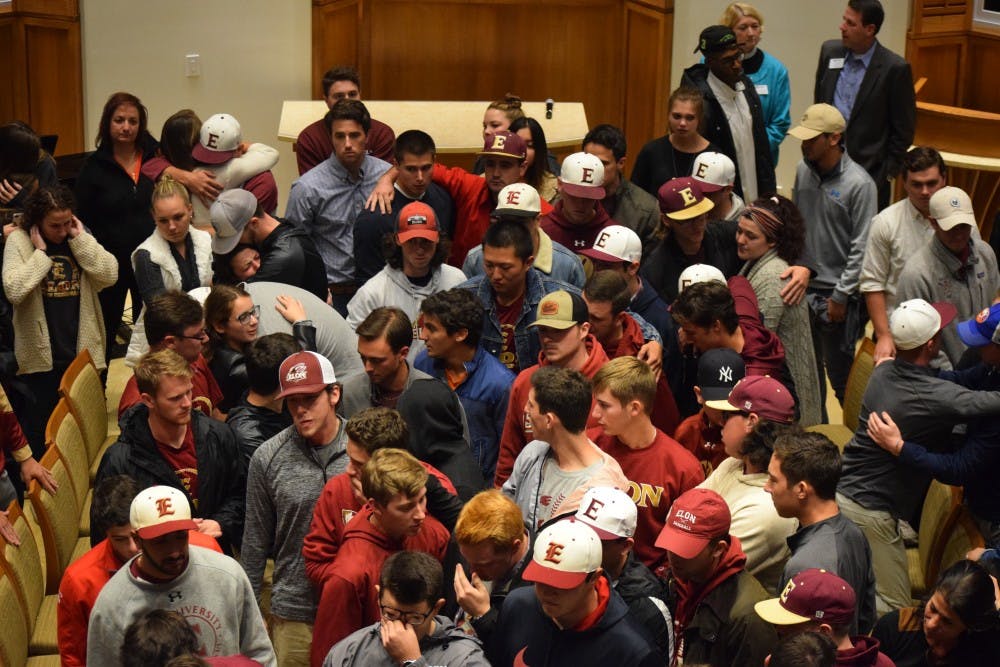Two years ago, Elon News Network published an editorial following the death of Elon University student Demitri Allison. The piece opened with, “There’s not a lot to say.”
Two years later, there still isn’t. What do you say to someone who lost their child, classmate, teammate, brother or friend? There is nothing any of us can say to make Breslin Wiley’s passing easier. There is nothing we can say in response to this to make it any better. There is no way for us to make sense of this tragedy.
There is plenty, though, that we can do for each other.
Wiley’s passing is the fourth student death to shake Elon’s campus in the last three years. After Trent Stetler took his own life in January 2015, we were stunned. After Allison died, we promised that we would open conversations about mental health on campus. Following Derek Winton’s drug overdose in the fall of 2016, we wondered what more we could do.
Now we are in the same situation and we have to face the facts — student deaths are a strong possibility on college campuses, including ours. The sad reality is that we cannot guarantee that this will not happen again. It can, and it has, but we must do whatever we can to try and mitigate tragedies that are preventable.
We may not be able to heal, but we can remember. We must remember Breslin for his smile, his kindness and his light.
Breslin Wiley was — and still is — loved deeply by those who knew him. He has been described by his loved ones as a vibrant, caring, positive young man and friend. You may not have known him, but he was a part of our community, and his passing will inevitably leave an irreparable hole in our campus and our hearts. He was loved more than he knew.
In the wake of his passing, it is vital that we support one another in our grieving. A tragedy like this can bring up depression, anxiety and general mental unwellness within the community.
Each year, organizations at Elon host events, forums and talks that aim to shed light on the epidemic of mental illness on our campus. Just a few weeks ago, SGA hosted a Town Hall discussing mental health. Orientation leaders and Elon 101 professors touch on mental health and share the resources that are available to students. Student run organizations such as Active Minds and SPARKS discuss this topic regularly and yet, the issue remains.
While it may seem like the issue of mental health is too salient to break through, we cannot give up on supporting our students, and in turn, hopefully ensuring that our community never suffers a loss like this again. Even if we feel as though our campus is doing enough when it comes to discussing mental health and supporting one another, we still need to be doing more. Doing more does not necessarily mean campus-wide initiatives and new programs — it starts with the community.
Ask your friends how they are and mean it. Do not take, “I’m fine, how are you?” as an answer. Pay attention and listen to how they are feeling. Engage in conversations about stress and heartbreak, sadness and fear. Tell your friends you love them. You do not need a reason to — just say it. Smile as you pass strangers across campus. See a counselor — even if you feel you do not need to. Talk more and listen more.
We need to do more and we need to come together. None of us can get through this difficult time alone, and that is perfectly OK. We have all likely heard this time and time again, but the sentiment rings true: It is OK to not be OK. It is OK to grieve. It is OK to lean on others.
The loss of a member of our community is beyond hard for everyone, especially for those of us who knew him. Take however long you need to grieve in whichever way you need to. And please remember — you are not alone.


